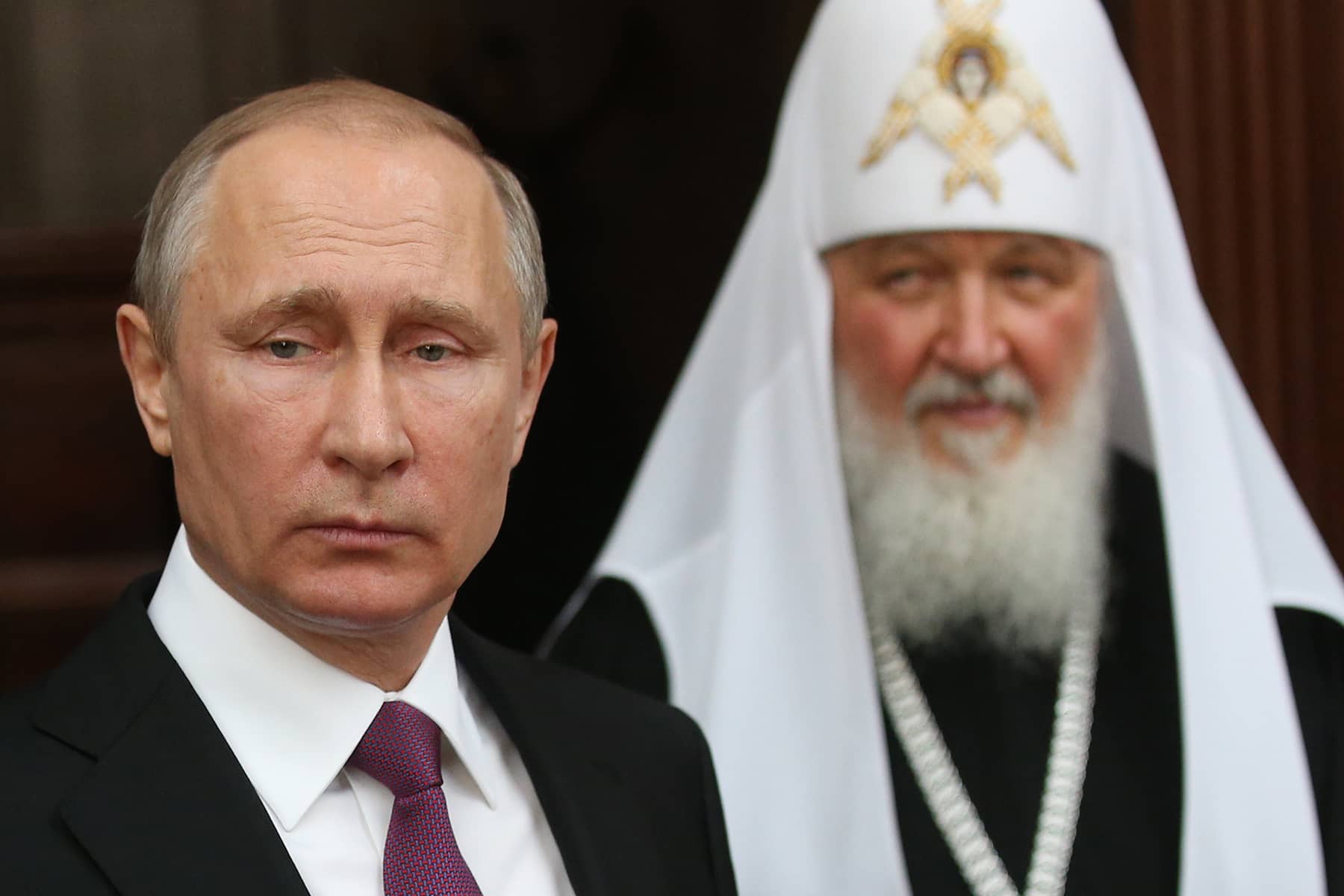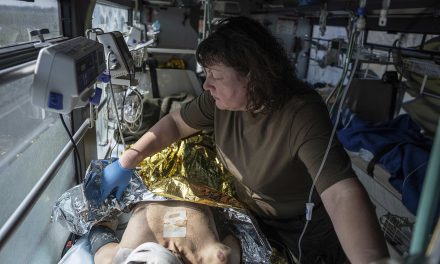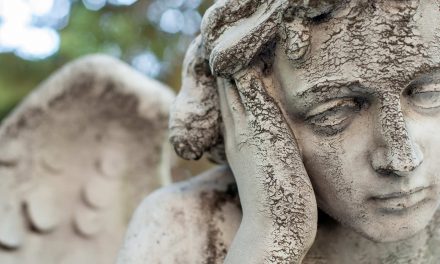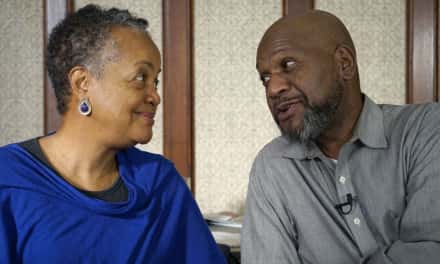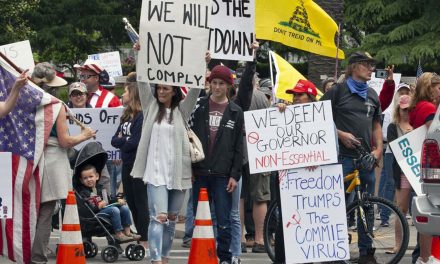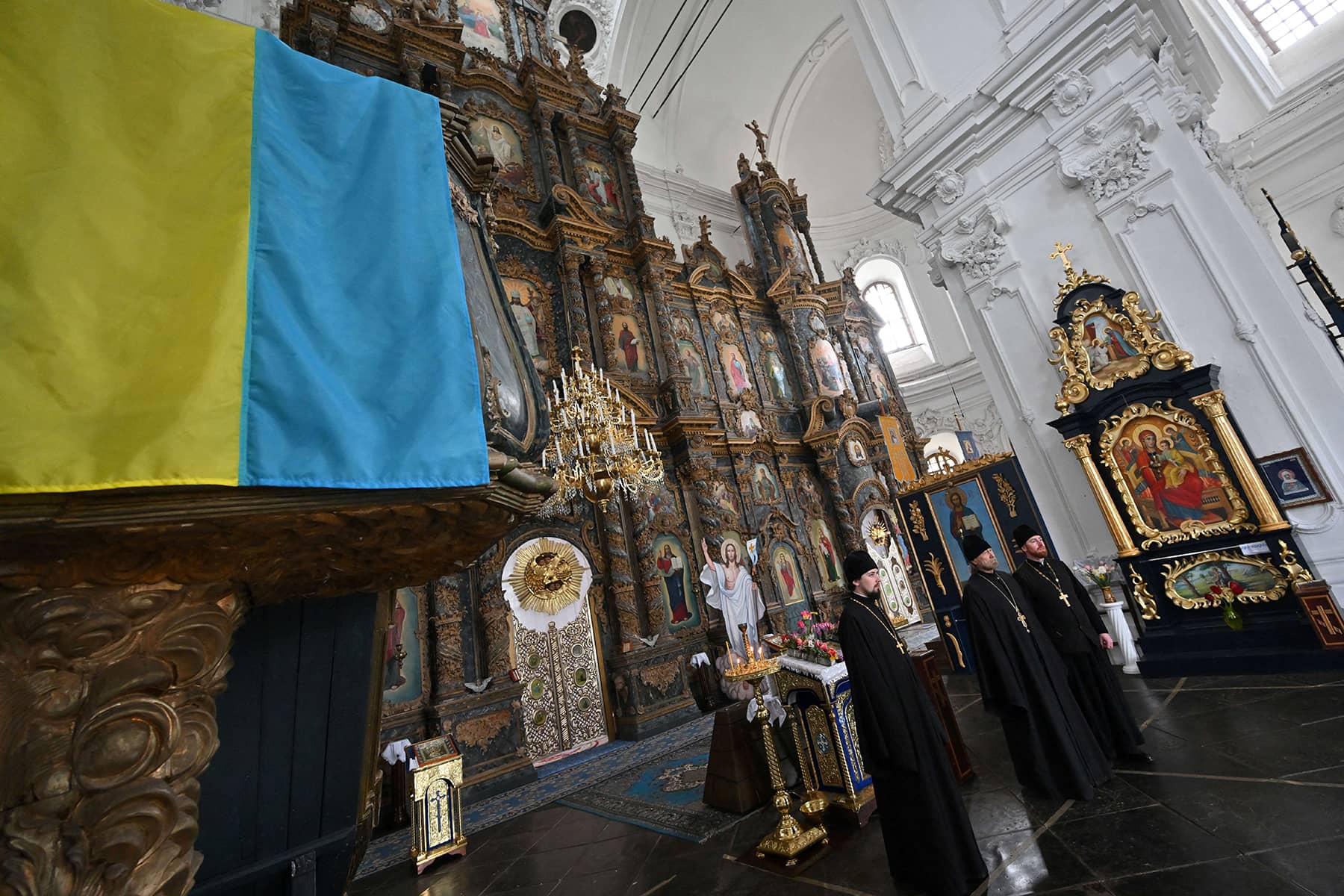
As war rages across Ukraine, Mykhaylo Tereshchenko is locked in his own spiritual battle that risks tearing his parish apart.
The priest is at a loss. He is a cleric of the Moscow branch of Ukraine’s Orthodox Church, which formally pledges allegiance to Russia’s Patriarch Kirill.
But on the ground, Tereshchenko is a fierce Ukrainian patriot, shocked by the brutality of President Vladimir Putin’s invasion of his country.
“This war has brought nothing good,” said Tereshchenko from his church in Kozelets, around 50 miles (80 kilometres) north of Kyiv.
“It has only brought us grief, destruction and death.”
He sighed, recounting the war’s chaotic early days, when he sheltered people fleeing nearby fighting in the church catacombs, among icons and the tomb of the parish’s founder.
“There are villages nearby where lots of people died and houses were destroyed. This pain is also ours,” the priest said.
Putin’s invasion has put Moscow-backed priests in Ukraine in a precarious position.
Russia lost a large number of Ukrainian parishes in 2019, when a historic schism fuelled by the Kremlin’s land grab of Crimea and backing of a separatist insurgency in the Donbas led to the creation of the Kyiv Patriarchate of the Orthodox Church.
Now, with Russia’s full-scale invasion which Patriarch Kirill has vocally supported, the Russian church is likely set to lose even more clerics and parishes.
As waves of Russian forces crossed into Ukraine, Kirill spoke out against the “forces of evil” opposed to the historic “unity” between Russia and Ukraine.
He later urged his followers to rally against Moscow’s “external and internal enemies”.
Kirill’s words led to Western calls for sanctions against him and a searing warning from his old rival in the Vatican, Pope Francis, to stop being “Putin’s altar boy”.
For priests in Ukraine like Tereshchenko, standing by their leaders in Moscow has become increasingly untenable.
But breaking links with the church also risks stirring unrest among their own congregations.
‘Hard to believe’
Patriarch Kirill’s apparent blessing for Putin’s invasion has infuriated Ukrainians, where millions have fled their homes and the civilian death toll rises every day.
“It’s hard to believe what the Patriarch has said,” Tereshchenko bristled.
“Ukrainians, Russians and Belarusians. We are all Slavs. And yet, he gives his blessings to go and kill his people.”
Some of his fellow clerics of the Moscow church have gone further, with hundreds signing an online petition calling for Patriarch Kirill to face a religious tribunal.
The head of the Moscow-backed church in Ukraine, Metropolitan Onufriy, has so far refrained from any criticism of his boss.
But his social media is full of funerals for fallen Ukrainian soldiers and support for Kyiv’s army.
He also had called for an Easter procession to retrieve trapped and wounded Ukrainian soldiers from the Azovstal plant in Mariupol, besieged by the Russian army.
Ukrainian priests who have already broken ranks with Moscow say Kirill’s message confirms what they have long said of Russia’s religious authorities and accuse him of blasphemy.
“The behaviour and statements of Kirill the Patriarch are simply terrifying,” said priest Oleksandr Shmuryhin from St Volodymyr’s Cathedral — part of the Kyiv Patriarchate of the Orthodox Church — in the Ukrainian capital.
“This is propaganda and theology that serves the war. It’s not Christianity.”
‘Follow one mission’
Now, some in Ukraine want the Moscow church to be banned outright.
In March, a draft piece of legislation was introduced in the Ukrainian parliament which if approved would formally prohibit the Russian Orthodox Church from operating in Ukraine and allow the seizure of its properties.
In Moscow, the clergy hit back, saying this proved that Putin’s “special military operation” was justified.
The rhetoric is likely to backfire and cost them more priests in Ukraine.
Some Ukrainians have turned their backs on the Russian church.
“All Ukrainians all over the world have to unite now and follow one mission — to help Ukraine in this victory,” said Daria Kolomiec, a 33-year-old Kyiv resident.
But Kirill, who has not been to Ukraine since before Moscow’s 2014 annexation of Crimea, still has his defenders in Ukraine, even in the heart of Kyiv.
“Yes, I have my worries,” 34-year-old churchgoer said Iryna Gen, comparing Putin to “Satan” ahead of a service at a Moscow Patriarchate church in Kyiv.
However, she insisted “Kirill has no connection” to the Russian president’s actions.
But for priests like Tereshchenko, the war has forced them to confront difficult questions that have lingered for years and an uncertain future.
“I want us to have our own Ukrainian church — independent from Moscow and any other state (including Ukraine),” said Tereshchenko.
“You can’t do anything with aggression, only with love.”
Mіkhаіl Svеtlоv
Originally published as Divided soul: rival Orthodox churches wage shadow war in Ukraine

